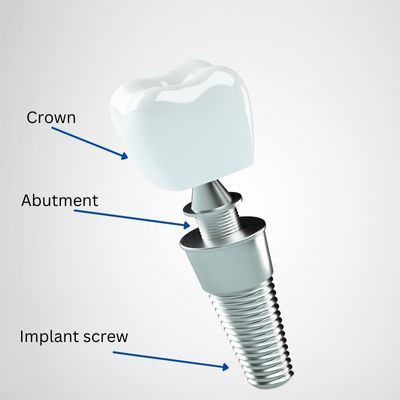
Dental implants require a healthy foundation to heal
I’ve had six teeth missing since 2012. I am sure that the bone in the spaces shrank, and I will need a bone graft first. My girlfriend says I cannot get a bone graft without quitting smoking. Is that true? I’ve smoked since I was 14 and am 52 now. How do I know whether I qualify for bone grafting for dental implants? Thanks. Walt from Kernersville, NC.
Walt,
Thank you for contacting Dr. Gavrilos’ office regarding dental implant bone graft qualifications.
Who Qualifies for a Dental Implants Bone Graft?
Patients with good oral and physical health qualify for a dental implant bone graft. Below is an overview of the qualifications.
Good Oral Hygiene
You are more likely to be a candidate for dental implant bone grafting if you practice good oral hygiene at home. Getting dental implants or a bone graft requires oral health habits that decrease the risks of post-surgery infection and graft or dental implant failure.
Good Physical Health
Your physical health must be good enough for you to have oral surgery. Certain medical conditions, such as uncontrolled diabetes, bone disease, or specific autoimmune disorders, may hinder healing after surgery. However, a medical condition does not automatically disqualify you. A skilled implant dentist or oral surgeon can anticipate the outcome of your treatment and recommend a bone graft and dental implant or alternative treatment.
Non-Smoker
Smoking constricts blood vessels and blood flow, interfering with bone graft healing. An implant dentist or oral surgeon will ask you to quit smoking before and after the procedure. Failure to break the habit can cause bone graft or dental implant failure and infection.
Healthy Gum Tissue
Progressive gum disease destroys bone tissue, so if you have gum disease, a dentist or periodontist (gum specialist) must control it before you get a bone graft. Otherwise, the graft will fail, and you cannot get dental implants.
Commitment to Post-Surgical Care
Committing to post-surgical oral hygiene, a soft-food diet, and not smoking will help your bone graft and dental implants succeed. Without commitment, infection and failed grafts or surgery are likely. Depending on oral health, the implant process can take up to a year or longer.
We recommend scheduling an appointment with a skilled implant dentist to discuss your concerns and goals for teeth replacement.
Dr. James Gavrilos, a Barrington, Illinois, accredited cosmetic dentist, sponsors this post.
